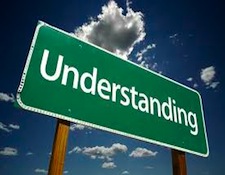It’s the time of year for saving money!
 On July 31, 2014, I received the following short letter on my email account. I have quoted it here in its entirety, exactly as written:
On July 31, 2014, I received the following short letter on my email account. I have quoted it here in its entirety, exactly as written:
“Roger,
I just wanted to tell you how much I appreciate the clarity of your writing. I know this isn’t the point but most of the correspondence I get is full of errors of all sorts. I don’t think I’m a grammatical snob but, if I’m reading something for content, I find it so disconcerting to have the sentences (or, interrupted), I wanna scream.
In fact, yours may be the only writings I get (antigrammatical?) in which I have neither an interest nor curiosity, but jump into said writing and think I’ve learned something when I’ve finished.
Anyway, I just wanted to let you know. I have never signed up for Tweetle and can’t figure out how to work with Facebook, and that’s why I’m just putting it into an email. So there.”
 The very first thing I did upon receiving it (Yes, it really IS a real letter) was to write back to the sender to express my sincere thanks for what had to be just about the very finest compliments any writer could ever hope to receive – that what I had written was consistently good enough to hold the attention of even someone who had no prior interest in or curiosity about its subject matter, and that after the reader had finished reading it, she felt like she had learned something!
The very first thing I did upon receiving it (Yes, it really IS a real letter) was to write back to the sender to express my sincere thanks for what had to be just about the very finest compliments any writer could ever hope to receive – that what I had written was consistently good enough to hold the attention of even someone who had no prior interest in or curiosity about its subject matter, and that after the reader had finished reading it, she felt like she had learned something!
Now, I know that it’s fun and very tempting for you trolls out there (and even those who aren’t really trolls, but just enjoy an occasional good scrap) to say that it’s easy to impress somebody who knows nothing about the subject and that, if they’re unknowing enough AND gullible enough, it’s even easy to make them feel like they’ve learned something. I know, also, that the very next words out of your mouths are going to be “that’s why they believe in_______.” (Go ahead, fill the blank. Plug in “cables”, “AC power conditioners”, the Easter Bunny”, or whatever else you’d like.)
The fact of it, though, is that an awful lot of articles get written – not just by me, but by everybody – and the number of people who don’t learn from them or even understand them is mind-boggling!
]]> One of the reasons for that is simply the internet. As I’ve said before on a different subject, anybody at all, with any level of knowledge at all, or even a total lack of it, can put together any two pieces of conductive material at all (a piece of coat hanger wire, for example, and a steel I-beam); and hook them up with a source and a load so that they complete a circuit, and they WILL pass signal, and that person WILL be able to call himself a “Cable Designer”. It’s the same with the internet: Anybody at all can hang together any number of words at all on any subject at all and–regardless of whether they have any meaning at all; make any sense at all; or are even correctly spelled – can call them an article and present himself as a writer.
Back in the days when I was the editor of Sounds Like…News, a monthly audio industry newsletter, I regularly got contributions, even from established writers for the top Hi-Fi magazines, that were barely comprehensible and required substantial editing just to make them suitable for publication. I have no idea how it is today, but I suspect that – not just on the internet, but even for the major print publications – things haven’t changed much at all, and that editors still have plenty of editing to do.
On the internet, at least for some private blogs or club postings, the reader has no other editor to rely on and must act as his own and, if the article he’s presented with isn’t logical; isn’t well- or grammatically written; or, for any other reason doesn’t make sense (think of all the things you’ve read that ARE well-written; ARE logically presented; and, like a syllogism with a faulty premise, STILL make no sense), the fact that he doesn’t understand it should be no surprise at all.
There are other reasons why people don’t understand articles, too, and they don’t have to do with the writer, but with the readers, themselves: One of those reasons is that, like the person who, when you’re talking to him, listens to you only closely enough to find out when it’s his turn to speak, many people simply don’t read what the article says. Either they’re so thrilled, appalled, or agitated by its subject matter that, instead of finding out what it has to say, they want to leap-in with their own commentary and make their own point, or, like those others who will try (often incorrectly) to finish your sentences for you, they feel so confident that they already know what the article is going to say that they think they have no need to read it.
Those are the ones who trouble me the most. When people write in with comments that make it apparent that they are either attacking or supporting me without any clue at all as to what I actually said, I always wonder whether it was because they didn’t bother to read or understand my article or if I simply didn’t do a good enough job of making my point. That bothers me.
One of the reasons for that is simply the internet. As I’ve said before on a different subject, anybody at all, with any level of knowledge at all, or even a total lack of it, can put together any two pieces of conductive material at all (a piece of coat hanger wire, for example, and a steel I-beam); and hook them up with a source and a load so that they complete a circuit, and they WILL pass signal, and that person WILL be able to call himself a “Cable Designer”. It’s the same with the internet: Anybody at all can hang together any number of words at all on any subject at all and–regardless of whether they have any meaning at all; make any sense at all; or are even correctly spelled – can call them an article and present himself as a writer.
Back in the days when I was the editor of Sounds Like…News, a monthly audio industry newsletter, I regularly got contributions, even from established writers for the top Hi-Fi magazines, that were barely comprehensible and required substantial editing just to make them suitable for publication. I have no idea how it is today, but I suspect that – not just on the internet, but even for the major print publications – things haven’t changed much at all, and that editors still have plenty of editing to do.
On the internet, at least for some private blogs or club postings, the reader has no other editor to rely on and must act as his own and, if the article he’s presented with isn’t logical; isn’t well- or grammatically written; or, for any other reason doesn’t make sense (think of all the things you’ve read that ARE well-written; ARE logically presented; and, like a syllogism with a faulty premise, STILL make no sense), the fact that he doesn’t understand it should be no surprise at all.
There are other reasons why people don’t understand articles, too, and they don’t have to do with the writer, but with the readers, themselves: One of those reasons is that, like the person who, when you’re talking to him, listens to you only closely enough to find out when it’s his turn to speak, many people simply don’t read what the article says. Either they’re so thrilled, appalled, or agitated by its subject matter that, instead of finding out what it has to say, they want to leap-in with their own commentary and make their own point, or, like those others who will try (often incorrectly) to finish your sentences for you, they feel so confident that they already know what the article is going to say that they think they have no need to read it.
Those are the ones who trouble me the most. When people write in with comments that make it apparent that they are either attacking or supporting me without any clue at all as to what I actually said, I always wonder whether it was because they didn’t bother to read or understand my article or if I simply didn’t do a good enough job of making my point. That bothers me.
 Still others, though, don’t really bother me very much at all: They’re the real live internet trolls — the people who, like piranhas, will attack anything at all just because that’s their nature. Or perhaps they have some deep-seated personal need for attention that they think they can satisfy only by challenging and taking the attention away from somebody else.
Whatever it is, one thing that I’ve noticed about trolls is that they don’t WANT to understand whatever the writer might be saying: With understanding might come acceptance, and that would destroy their argument and spoil their fun, entirely. Another thing is that, even if they do offer an argument to what they think the writer is saying, that argument will never be from their own thinking or experience, but will invariably be a citation of an article or a recitation of the words of somebody else. Could that mean that they think their own ideas might have no value? Or might open them up to having to defend them? Maybe it’s simply a way of avoiding any blame for the challenge. (“Hey, I’m not a bad guy; I’m not attacking you; I’m just defending THIS guy’s ideas.”)
I don’t “get” trolls. I don’t “get” people who read articles without actually reading them, either. If you’re not going to read an article to understand it or be entertained or enlightened by it, why read it all?
I do get people who, like apparently the great majority of you and the writer of the very nice letter that I opened this article with, that do read what I have to say; do pay me the very great compliment of – whether you agree with me or not — actually trying to understand it; and do sometimes pay me the even greater compliment of actually feeling like you’ve learned something.
Still others, though, don’t really bother me very much at all: They’re the real live internet trolls — the people who, like piranhas, will attack anything at all just because that’s their nature. Or perhaps they have some deep-seated personal need for attention that they think they can satisfy only by challenging and taking the attention away from somebody else.
Whatever it is, one thing that I’ve noticed about trolls is that they don’t WANT to understand whatever the writer might be saying: With understanding might come acceptance, and that would destroy their argument and spoil their fun, entirely. Another thing is that, even if they do offer an argument to what they think the writer is saying, that argument will never be from their own thinking or experience, but will invariably be a citation of an article or a recitation of the words of somebody else. Could that mean that they think their own ideas might have no value? Or might open them up to having to defend them? Maybe it’s simply a way of avoiding any blame for the challenge. (“Hey, I’m not a bad guy; I’m not attacking you; I’m just defending THIS guy’s ideas.”)
I don’t “get” trolls. I don’t “get” people who read articles without actually reading them, either. If you’re not going to read an article to understand it or be entertained or enlightened by it, why read it all?
I do get people who, like apparently the great majority of you and the writer of the very nice letter that I opened this article with, that do read what I have to say; do pay me the very great compliment of – whether you agree with me or not — actually trying to understand it; and do sometimes pay me the even greater compliment of actually feeling like you’ve learned something.





